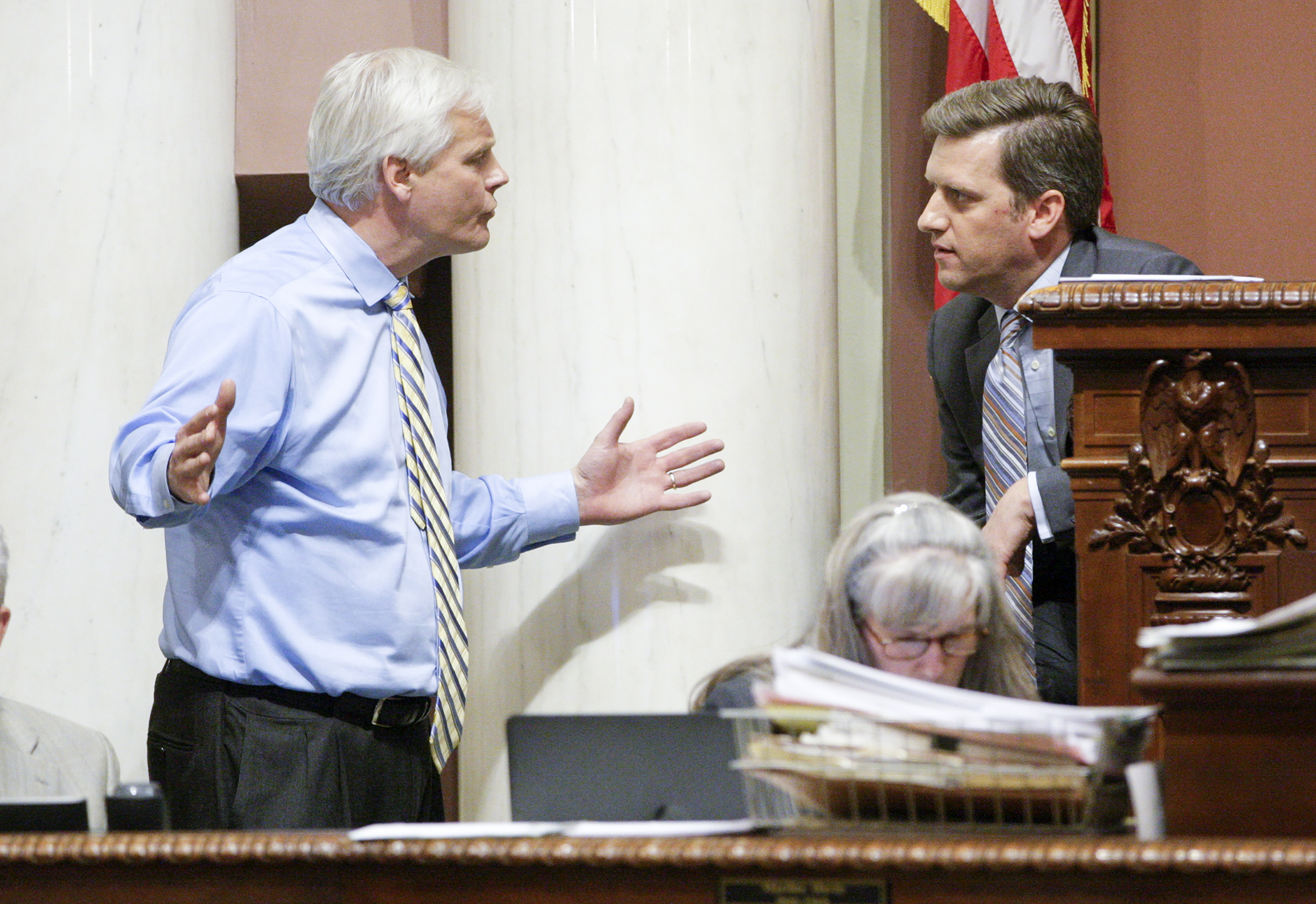No bonding bill after chaotic close to 2016 legislative session

It could be the bonding year that wasn’t.
House and Senate lawmakers failed late Sunday to pass a roughly $1 billion borrowing package for public works projects across the state — traditionally the centerpiece of even-year legislative years — in the chaotic final minutes of the 2016 session.
The proposal represented a hastily-assembled compromise reached following a protracted weekend of conference committee and leadership negotiations held behind closed doors.
According to spreadsheets distributed as debate on the bonding bill began, it would have authorized $818 million in total bonding as part of a $1.1 billion package for public works spending on projects like rail crossing safety upgrades, water infrastructure improvements, and road and bridge projects.
Rolled out with roughly an hour remaining before the Legislature’s constitutionally-mandated midnight deadline, the proposal was amended onto an existing capital investment bill, HF622, that had failed earlier in the week.
WATCH House Floor debate of the omnibus capital investment bill on YouTube
The House passed the bill, as amended, 91-39 with minutes to spare following a stormy debate that saw members shouting on the House Floor. It was then amended further in the Senate to include funding for the proposed Southwest light rail line from Minneapolis to Eden Prairie — a key sticking point in negotiations between the Republican-controlled House and DFL-controlled Senate in recent weeks.
The House, though, adjourned sine die before the amended version of HF622 was returned to the House for a final vote.
Barring a special session, lawmakers’ failure over 11 weeks in session to get a bonding bill to the governor’s desk means public works projects large and small across the state could go unfunded.
The bill would have poured almost $700 million in one-time dollars — consisting of $236 million in general-obligation bonding, $265.5 million in General Fund dollars and $181 million in Trunk Highway spending, according to House Republicans — into transportation projects, far more than originally proposed in the version of HF622 that failed to garner the required three-fifths majority to pass earlier in the week.
Related Articles
Search Session Daily
Advanced Search OptionsPriority Dailies
Speaker Emerita Melissa Hortman, husband killed in attack
By HPIS Staff House Speaker Emerita Melissa Hortman (DFL-Brooklyn Park) and her husband, Mark, were fatally shot in their home early Saturday morning.
Gov. Tim Walz announced the news dur...
House Speaker Emerita Melissa Hortman (DFL-Brooklyn Park) and her husband, Mark, were fatally shot in their home early Saturday morning.
Gov. Tim Walz announced the news dur...
Lawmakers deliver budget bills to governor's desk in one-day special session
By Mike Cook About that talk of needing all 21 hours left in a legislative day to complete a special session?
House members were more than up to the challenge Monday. Beginning at 10 a.m...
About that talk of needing all 21 hours left in a legislative day to complete a special session?
House members were more than up to the challenge Monday. Beginning at 10 a.m...